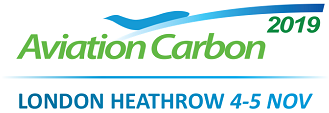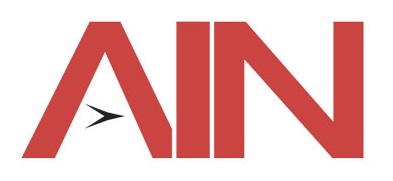ICAO's CORSIA - August 2019 Newsletter
27/08/2019
Aviation Carbon 2019: Early Bird ends on Saturday! |
 |
Aviation Carbon 2019 will bring together the aviation and carbon markets, plus policymakers, NGOs and other stakeholders, to inform and discuss the latest developments in addressing aviation’s climate impact.
A strong focus at this year’s conference will be looking back on how airlines and business jet operators have dealt with the monitoring and reporting provisions of the global ICAO CORSIA scheme for international aviation that became effective in January and also important developments over the past year at ICAO concerning the environmental integrity of the scheme.
The conference will also cover aircraft and alternative fuel technologies; long-term goals to reduce aviation emissions in line with the Paris Agreement; and recent moves by Europe to impose additional taxation and carbon pricing on flights. Draft agenda is now available.
A special feature will be a free workshop for airlines and business jet operators on CORSIA reporting and verification organized by VERIFAVIA.
Partners to this year’s event include the Air Transport Action Group (ATAG), Airlines for America (A4A), Arab Air Carriers Organization (AACO), Association of Asia Pacific Airlines (AAPA), European Regions Airline Association (ERA), Latin American and Caribbean Air Transport Association (ALTA), International Emissions Trading Association (IETA), International Coalition for Sustainable Aviation (ICSA) and Roundtable on Sustainable Biomaterials (RSB).
Very attractive Early Bird rates are available only until 31 August 2019!
Visit the event’s website
Register here

ICAO's CORSIA Update |
 |
As of 4 August 2019, 81 States, representing 76.63% of international aviation activity, intend to voluntarily participate in CORSIA from its outset. The latest announcement of participation came from Tanzania.
Here are the most important dates and actions you and other responsible stakeholders need to be aware of:
- July 2019 [aeroplane operator] – the Environmental Technical Manual (ETM) recommends that aeroplane operator and verification body agree on the contractual matters of the verification engagement.
- September 2019 [aeroplane operator & Verification body] - the ETM recommends the verification starts
- 31 May 2020 [aeroplane operator & verification body] – submission of verified 2019 Emissions Report to the State
As per the Environmental Technical Manual, the aeroplane operators should engage a verification body as soon as in July 2019 and the verification process should start in September 2019. It is recommended to start the verification process as soon as possible in order to ensure smooth compliance.
Verification bodies must be accredited by a National Accreditation Body of a Contracting State before they can engage in any contractual agreement. It is therefore imperative that aeroplane operators request a valid certificate of accreditation from any verification body that they are in contact with.
Read more about ICAO's CORSIA
SARPs – Annex 16 Volume IV
Environmental Technical Manual – Volume IV
Template of Emissions Monitoring Plan (from aeroplane operator to State)
ICAO’s CORSIA website
See VERIFAVIA's certificates of accreditation
Contact us to receive a proposal for our CORSIA verification services
ICAO published the aeroplane operators list
ICAO has published the document entitled ‘CORSIA Aeroplane Operator to State Attribution’ summarizing a list of aeroplane operators and the State to which they have been attributed. The list has been published on 28 May 2019 after ICAO received respective lists from its Contracting States. The States were asked to submit to ICAO a list of aeroplane operators to which the CORSIA MRV requirements are applicable and which are attributed to this State
The current version of the list includes aeroplane operators from 108 States while 154 States report international RTKs generated by airlines attributed to them. We can thus assume that the list is not complete. Certain NGOs predicted around 300 aeroplane operators would fall within the applicability of the CORSIA MRV system and the available list includes 632 aeroplane operators. One look over the list however reveals that some States might have included more than only the requested operators. The list includes for example helicopter operators and small operators who emit less than 10,000 t CO2 annually on international routes.
Download the ‘CORSIA Aeroplane Operator to State Attribution’
Visit the ICAO website for a searchable list

International aviation CO2 could treble by 2045 and fuel efficiency goal missed, says ICAO |
 |
With an anticipated increase of 3.3 times growth in international air traffic during the period 2015-2045, ICAO projects fuel consumption and carbon emissions will increase by 2.2 to 3.1 times, depending on advances in technology and air traffic management. International aviation consumed approximately 160 million tonnes (Mt) of fuel in 2015, resulting in CO2 emissions of around 505 Mt. By 2045, if the scenarios were followed, carbon emissions from international flights could rise to between 1,110 Mt and 1,570 Mt. Even under the most optimistic scenario, ICAO’s projected long-term average fuel efficiency improvement of 1.37% per annum falls short of its aspirational goal of 2%. On aircraft noise, the area around airports exposed to yearly average day-night noise levels above 55 dB is likely to remain the same or grow up to 2.2 times during the 2015-2045 period. These global trends, which also include aircraft NOx emission projections, are to help inform discussions at the forthcoming ICAO 40th Assembly. […]
Read the article

EgyptAir delivery flight of a 787-9 Dreamliner from Boeing sets new sustainable aviation fuel records |
 |
The latest delivery of a new Boeing 787-9 Dreamliner to customer EgyptAir was powered by a 30/70 blend of sustainable aviation fuel (SAF) and conventional kerosene. The 13-hour, 11,000km delivery flight from Boeing’s facility in Everett, Washington, marks the longest flight to date using a SAF blend this high and the longest of any SAF-powered transatlantic commercial aircraft flight, claims the airline. EgyptAir also becomes the first North African airline to use SAF. The SAF was produced from used cooking oil by World Energy at its California biorefinery and supplied by EPIC Fuels. The airline said the Boeing 787-9 is expected to reduce fuel use and carbon emissions by 20% over the aircraft it is replacing. Boeing estimates the Dreamliner family has saved 37 billion pounds (16.8 million tonnes) of fuel since entering service in 2011, the equivalent of taking 10 million cars off the road for a year. […]
Read the article
Global response of aviation industry to climate challenge far too timid and complacent, says EU transport chief |
 |
Arguing the ICAO CORSIA global carbon offsetting scheme is a sufficient tool in meeting the industry’s contribution to the climate challenge is not enough anymore, the European Commission’s Director-General for Mobility and Transport, Henrik Holohei, said in a keynote speech at last week’s meeting of the International Aviation Club in Washington DC. In a hard-hitting message, he said societal and political priorities in Europe had evolved and sustainability had become the new number one challenge for aviation, requiring the airline industry to “step up”. Proposals on the taxation of kerosene and passengers were being discussed at the European level, he told the US audience. His comments follow a move by France to impose an ‘eco-tax’ on tickets for all outgoing flights and consideration by Germany on raising its aviation tax to make flying more expensive in order to cut emissions. […]
Read the article
IATA Focus on CORSIA as Air India Takes Pole Position |
 |
Air India is taking the lead on aviation sustainability along with IATA in India to help create an understanding of requirements for Monitoring, Reporting, and Verification (MRV) for airlines in India flying internationally. MRV is the first stage of ICAO’s Carbon Offsetting and Reduction Scheme for International Aviation (CORSIA).
“Having participated in the [European Union-Emissions Trading Scheme] EU-ETS, we have faced challenges and complexities of compiling data. We have offered to help Indian carriers on any issues they may face to provide a modular orientation. While IATA provides the methodology, we offer practical experience on MRV,” said Harpreet A De Singh, head of corporate environment management system, Air India. […]
Read the article

The VERIFAVIA team is available for any questions you may have about this newsletter or other ETS and CORSIA related issues.
Contact us
Follow us on twitter









